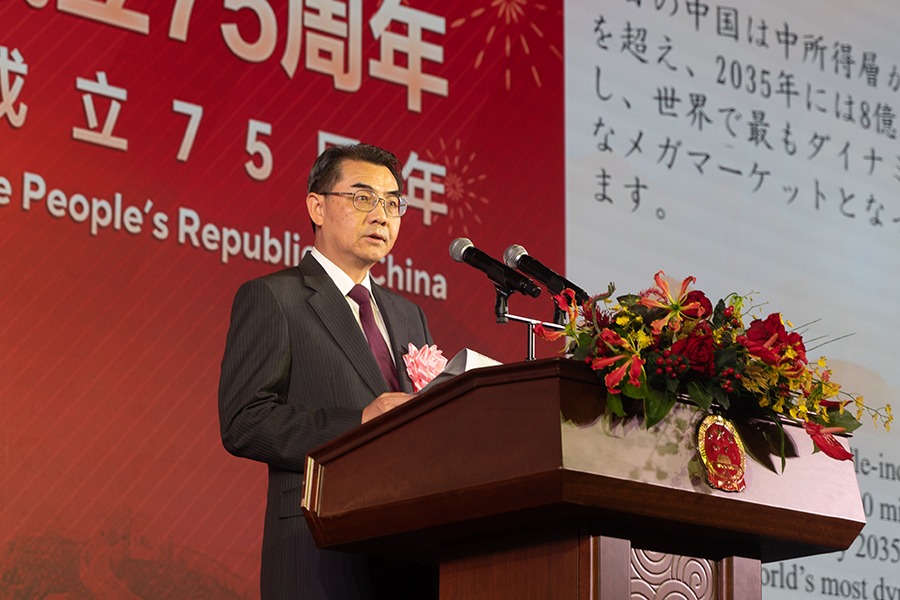Blue plaque unveiled in Birmingham for Chinese geologist


China's Ambassador to the United Kingdom Zheng Zeguang attended a ceremony at the University of Birmingham on Thursday where a blue plaque was unveiled to mark Chinese geologist Li Siguang who studied at the university in his early years.
Li is a renowned Chinese geological expert, known as the founding father of Chinese geology, who was born on October 1889, and died at the age of 82. His theories have played a significant role in China's discovery of oil and gas reserves, as well as contributing to earthquake prediction.
Li arrived in Birmingham in 1914 to study in the university's School of Mining. He received his bachelor's degree in 1917, followed by a master's degree in 1918. Having then spent several years researching geology in China, Li returned to the university for his doctorate, which was awarded in 1931.
"We are so pleased that Li Siguang's legacy is alive in a great university," Zheng said.
The University of Birmingham has long recognized Li as one of its most famous Chinese alumni, with a range of projects to continue his legacy, said Jon Frampton, deputy pro-vice chancellor (China) and director of University of Birmingham China Institute.

One of these is a series of annual lectures in Li's name at the university's China Institute, which cover a wide range of disciplines, including groundwater sustainability, science diplomacy, and cultural understanding, which are relevant to the university's academic engagement with China, Frampton said.
To link Li's legacy with the university's academic excellence, broad research collaboration has been established between scholars from China and Birmingham, involving work around health, energy, air pollution, geology, plant evolution and more, according to William Bloss, interim pro-vice chancellor and head of the university's college of life and environmental sciences.
"As you see, the results of our cooperation belong to humanity because they will help to resolve the common challenges between two countries and the whole world. I congratulate the university on your success in research and teaching. I look forward to more fruitful cooperation between China and the university," the ambassador said.
"There are more than 200,000 Chinese students in the UK and over 6,800 at the University of Birmingham. They will become Li Siguang someday, and we hope the more, the better," said Zheng.
A blue plaque is a sign installed in a public place in the UK to commemorate a link between that location and a famous person.
Li's blue plaque will be placed at the university's Lapworth Museum of Geology, which is one of the UK's oldest specialist geological museums.

After the unveiling, the ambassador met Chinese student representatives at the University of Birmingham. He encouraged them to learn from Li, who closely aligned his aspirations with the development of China.
"Li returned to China with determination after the new China was founded in 1949, as he believed that there would be a place for talent, although the country was undeveloped at that time. Eventually, China made Li as well.
"I wish you, as Chinese students abroad, would be willing to serve your home country after finishing your education in the UK," said Zheng.
The ambassador also encouraged Chinese students to make more friends with foreign peers, learn from their culture, and keep on telling Chinese stories.
Zhang Cetengfei, a doctoral student majoring in automotive engineering, said he is keen on advocating friendly exchanges and facilitating academic communication between China and the UK.
"I have built a deep friendship with students around the world during my seven years of study in the UK. My supervisor, my colleagues and I have closely worked with the research institutes in China…I hope I can contribute more to promoting mutual cooperation between the two nations in the field of education and research," said Zhang.
Zheng Wanyin and Xing Yi contributed to this story.
































